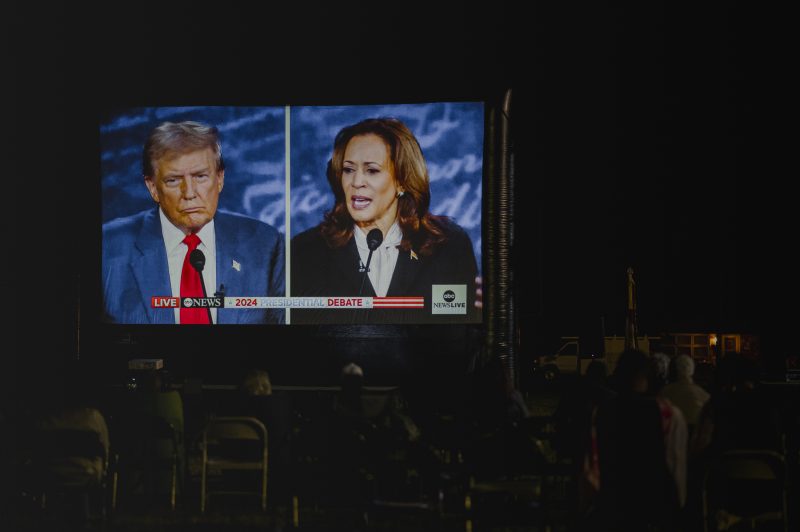In the recent presidential debate, both Vice President Kamala Harris and Former President Donald Trump showcased their vision for the future of the nation. This was evident through their shared desire to be the change candidate, albeit from contrasting perspectives. While Harris aimed to bring about progressive reforms and social justice, Trump advocated for conservative values and economic growth.
Harris, serving as the incumbent Vice President, strategically positioned herself as the beacon of hope for those seeking a more inclusive and equitable society. Throughout the debate, she underscored her commitment to addressing systemic racism, healthcare disparities, and climate change. By emphasizing her past efforts in advocating for marginalized communities and championing progressive policies, Harris sought to differentiate herself as a candidate who embodies the change many Americans yearn for.
Conversely, Trump approached the notion of change through the lens of economic prosperity and national security. Drawing on his tenure as President, Trump highlighted his administration’s track record of job creation, tax cuts, and deregulation, framing these achievements as pivotal in driving the country towards a more prosperous future. By leveraging his experience in foreign policy and border security, Trump appealed to voters who prioritize stability and strength in the face of external threats.
However, both candidates faced challenges in defending aspects of their pasts that could potentially hinder their aspirations to be perceived as change agents. For Harris, critiques centered on her prosecutorial record, which has drawn scrutiny from progressive activists who question her commitment to criminal justice reform. Similarly, Trump encountered criticisms related to his handling of the COVID-19 pandemic and his administration’s divisive rhetoric on issues of race and immigration.
Despite these challenges, Harris and Trump each made a compelling case for why they are best positioned to lead the country towards a brighter future. Harris’s message of unity, social justice, and progress resonated with those seeking a more inclusive society, while Trump’s emphasis on economic growth, security, and American exceptionalism appealed to voters who prioritize stability and prosperity.
In summary, the debate between Harris and Trump underscored their shared ambition to be perceived as the change candidate, albeit with divergent approaches and priorities. As the election season progresses, it remains to be seen which vision for change will resonate most with the American electorate and shape the future trajectory of the nation.
